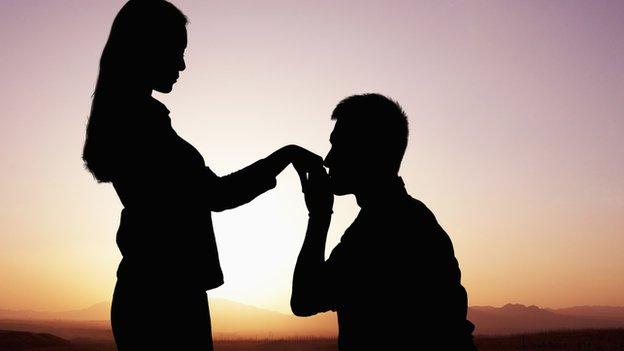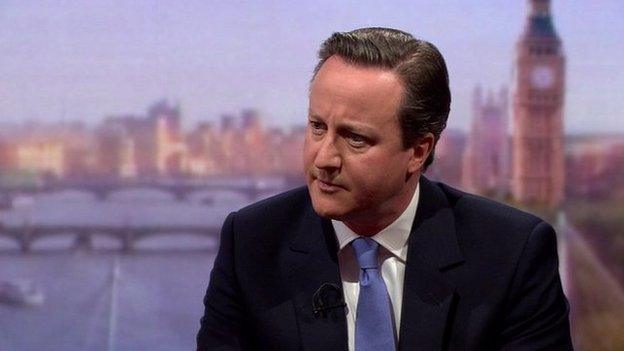Election 2015: Why would next government woo DUP?
- Published
- comments

Will Conservatives or Labour make a proposal to the DUP?
It looked for a while that the most remarkable aspect of a relatively low-key campaign could be two of the Stormont parties apparently breaking the rules over their manifesto launches.
First, UKIP left itself open to a dressing down from the Assembly Commission over its use of a committee room to promote its local policies .
Then the DUP ran foul of Transport for London over its eye catching decision to unveil its manifesto against the backdrop of a Wrightbus Routemaster double decker.
TFL made it clear it wouldn't have given permission for the use of the Routemaster if asked in advance because of the "pre-election rules for public bodies".
Which raises the question in my mind: If posing on a bus is forbidden territory for candidates, what protocols were in place for all those hospital visits Messrs Cameron, Miliband and Clegg have been pictured making in recent weeks?
Scrutinised

David Cameron was grilled on BBC Radio One's Newsbeat
I suspect the DUP's spin doctors won't be overly concerned about TFL's belated expression of annoyance.
They will welcome rather less Mary Hassan's Paxmanesque grilling of David Cameron on BBC Radio One's Newsbeat.
One DUP source argued that, on balance, it was better to be talked about than not, but the party has been relatively sheepish about highlighting its views on moral issues, especially on outlets where their views will be scrutinised by the London media and political classes.
Track record
Viewed from Belfast, the question may be: Who will the DUP deign to support in the event that they hold an influential position in a hung parliament?
But the exchange between Mary Hassan and David Cameron turns the query the other way around.
It highlights the potential downsides to either Labour or the Conservatives from appearing to be too cosy to a party with the DUP's track record on gay marriage, the conscience clause and the blood ban.
Mary Hassan isn't the first to raise this point.
Similar concerns were highlighted by the left-wing New Statesman before the campaign got under way, whilst the Lib Dems, eager not to be rendered irrelevant in any future deals, included some DUP politicians' fundamentalist views on homosexuality in a deck of cards they distributed as part of their spoof "Blukip" warning , external.
The achilles heel in the Newsbeat exchange was the use of the term "coalition".
The DUP has already pointed out that it doesn't want to be part of a coalition, but has in mind a looser "confidence and supply" arrangement.
Both Labour and the Conservatives may be wary of their own grassroots' reaction to a formal link with the DUP given its moral perspective.
But that doesn't mean that - if the arithmetic adds up - either will spurn its backing on a vote-by-vote basis.
If we are about to enter an era of minority government at Westminster, it's conceivable a future prime minister might well turn to the DUP for some votes, whilst doing business with other smaller parties when the issue doesn't match the DUP's moral compass.